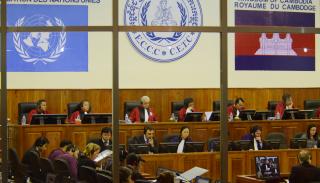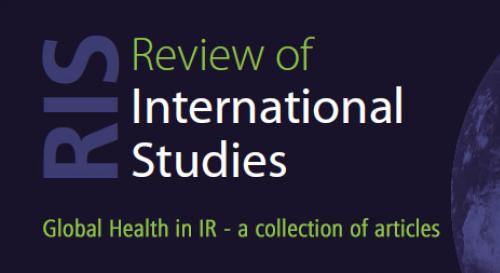
Breadcrumbs navigation
Framing, truth-telling, and the limits of local transitional justice
In his latest article for BISA journal Review of International Studies (RIS), Adam Kochanski (Centre for International Peace and Security Studies, McGill University) discusses how local transnational justice (TJ) efforts can sometimes be used to deflect justice in manners that paradoxically allow ruling parties to avoid human rights accountability and to conceal the truth about wartime violations.
Here Adam speaks to Juliet Dryden about his research on TJ, the key arguments from his article, and the case study of Cambodia which he has used to reveal and to trace the processes by which distortional framing has been used as a technique to deflect justice.
Adam's article appears in the latest issue of RIS (October 2021). Read it in full at DOI: https://doi.org/10.1017/S0260210521000115
BISA members receive access to RIS (and our other journal European Journal of International Security) as a benefit of membership. To gain access log in to your BISA account and scroll down to the 'Membership benefits' section. If you're not yet a member join today.
Full article abstract
Transitional justice (TJ) is undergoing a legitimacy crisis. While recent critical TJ scholarship has touted the transformative potential of locally rooted mechanisms as a possible means to emancipate TJ, this burgeoning literature rests on shaky assumptions about the purported benefits of local TJ and provides inadequate attention to local-national power dynamics. By taking these factors into consideration, this article contends that local TJ efforts can be used to deflect justice in manners that paradoxically allow ruling parties to avoid human rights accountability and to conceal the truth about wartime violations. It further argues that the principal method by which justice is subverted is not through overt manipulation by abusive governments, but rather, through subtle and indirect ‘distortional framing’ practices, which ruling parties use to set discursive limits around discussions of conflict-related events and to obfuscate their own serious crimes. After developing this argument theoretically, the case study of Cambodia is considered in detail to reveal and to trace the processes by which distortional framing has been used as a technique to deflect justice.
Image licensed under the Creative Commons Attribution-Share Alike 2.0 Generic licence.


